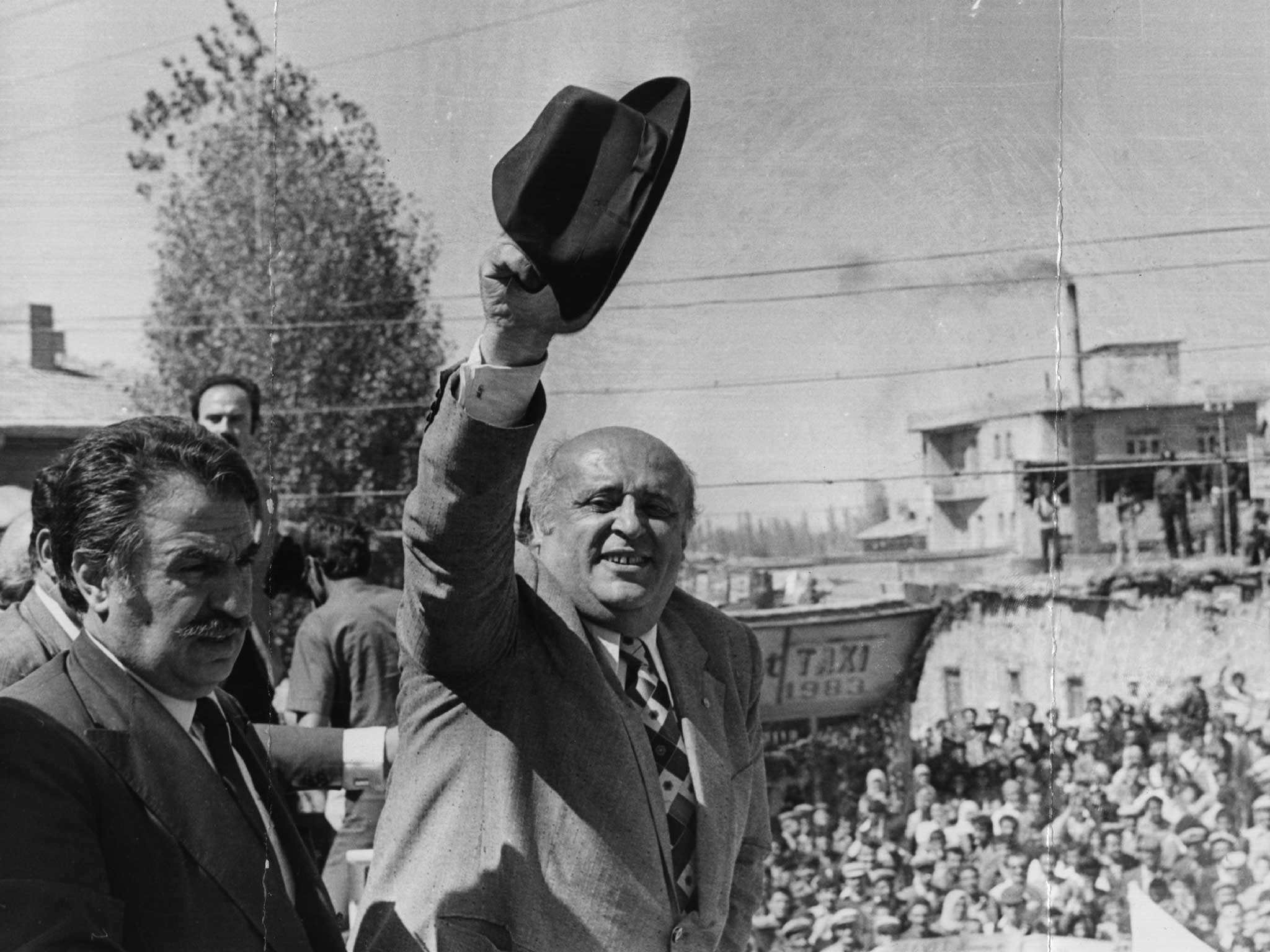The Independent's journalism is supported by our readers. When you purchase through links on our site, we may earn commission.
Former Turkish president Suleyman Demirel dies in hospital aged 90
Served as Prime Minister nine times

Your support helps us to tell the story
From reproductive rights to climate change to Big Tech, The Independent is on the ground when the story is developing. Whether it's investigating the financials of Elon Musk's pro-Trump PAC or producing our latest documentary, 'The A Word', which shines a light on the American women fighting for reproductive rights, we know how important it is to parse out the facts from the messaging.
At such a critical moment in US history, we need reporters on the ground. Your donation allows us to keep sending journalists to speak to both sides of the story.
The Independent is trusted by Americans across the entire political spectrum. And unlike many other quality news outlets, we choose not to lock Americans out of our reporting and analysis with paywalls. We believe quality journalism should be available to everyone, paid for by those who can afford it.
Your support makes all the difference.Former Turkish president Suleyman Demirel has died in hospital aged 90.
Demirel, whose last name means ‘iron hand’, was perhaps most notable for his ability to dramatically pivot his political leanings with the predominant power – serving as PM of Turkey seven times and surviving two military coups.
Born to a farming community on 1 November 1924, like many of Turkey’s foremost political leaders of the period he trained as an engineer, becoming known as the ‘king of the dams’ and later working in the US under a pilot educational programme.
On his return to Turkey he made common cause with the dominant military figures of the day, becoming Turkey’s youngest ever prime minister in 1965 at just 40 years old.
His tenure was marked by increasing instability: riots, bombings and kidnappings were widespread. In 1972 he resigned from his position, returning control to the Turkish generals who had installed him.
Later in the 1970s he served as the head of three governments, heading a period of severe economic chaos for Turkey. He successfully led governments in 1987 and 1991 – despite having been banned from political engagement after a successful military coup in 1980.
In 1993 Demirel became the country’s ninth president, serving until 2000 when he tried – and failed – to have the nation’s constitution changed to allow his re-election.
Over the course of his life, Demirel, who married but had no children, supported the social democrats, Islamists and crypto-fascists of the extreme right.
“He was a supreme pragmatist. He wanted to stay in power,” Morton Abramowitz, a former United States ambassador to Turkey told The New York Times.
Demirel’s supporters claim he should be credited with turning Turkey from a broadly agriculture economy to an increasingly industrial and urban one.
"We said: 'Let's save this country from darkness.' We took light to the most out-of-the-way villages of Turkey. We took electrical lamps to replace gas lamps," he said in one of his last public appearances in October last year.
But his detractors – of which there are many – allege the canny politician symbolised a culture of power before principles.
His best known slogan was the Turkish phrase, ‘Dun dundur, bugun bugundur,’ or: “Yesterday was yesterday, today is today.”
He is expected to be buried in Islamkoy after a state funeral in Ankara on Friday.
Additional reporting by Associated Press
Join our commenting forum
Join thought-provoking conversations, follow other Independent readers and see their replies
Comments